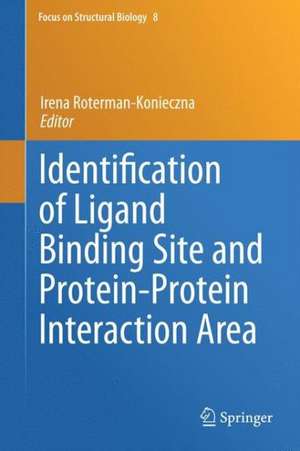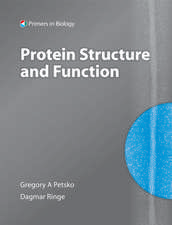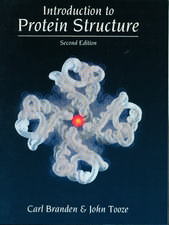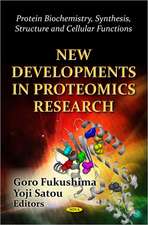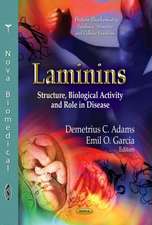Identification of Ligand Binding Site and Protein-Protein Interaction Area: Focus on Structural Biology, cartea 8
Editat de Irena Roterman-Koniecznaen Limba Engleză Hardback – 19 oct 2012
| Toate formatele și edițiile | Preț | Express |
|---|---|---|
| Paperback (1) | 1087.87 lei 6-8 săpt. | |
| SPRINGER NETHERLANDS – 9 noi 2014 | 1087.87 lei 6-8 săpt. | |
| Hardback (1) | 1096.62 lei 6-8 săpt. | |
| SPRINGER NETHERLANDS – 19 oct 2012 | 1096.62 lei 6-8 săpt. |
Preț: 1096.62 lei
Preț vechi: 1154.34 lei
-5% Nou
Puncte Express: 1645
Preț estimativ în valută:
209.87€ • 218.29$ • 173.26£
209.87€ • 218.29$ • 173.26£
Carte tipărită la comandă
Livrare economică 12-26 aprilie
Preluare comenzi: 021 569.72.76
Specificații
ISBN-13: 9789400752849
ISBN-10: 9400752849
Pagini: 180
Ilustrații: X, 170 p.
Dimensiuni: 155 x 235 x 15 mm
Greutate: 0.48 kg
Ediția:2013
Editura: SPRINGER NETHERLANDS
Colecția Springer
Seria Focus on Structural Biology
Locul publicării:Dordrecht, Netherlands
ISBN-10: 9400752849
Pagini: 180
Ilustrații: X, 170 p.
Dimensiuni: 155 x 235 x 15 mm
Greutate: 0.48 kg
Ediția:2013
Editura: SPRINGER NETHERLANDS
Colecția Springer
Seria Focus on Structural Biology
Locul publicării:Dordrecht, Netherlands
Public țintă
ResearchCuprins
Contributors.- Foreword.- Chapter 1 SuMo, J-A. Chemelle, E. Bettler, CH. Combet, R. Terreux, CH. Geourjon, G. Deleage.- Chapter 2 Identification of pockets on protein surface to predict protein–ligand binding sites, Binding Huang.- Chapter 3 Can the structure of the hydrophobic core determine the complexation site?, M. Banach, L. Konieczny, I. Roterman.- Chapter 4 Comparative analysis of techniques oriented on the recognition of ligand binding area in proteins, P. Alejster, M. Banach, W. Jurkowski, D. Marchewka, I. Roterman.- Chapter 5 Docking predictions of protein-protein interactions and their assessment, Joel Janin.- Chapter 6 Prediction of protein-protein binding interfaces, D. Marchewka, W. Jurkowski, M. Banach, I. Roterman.- Chapter 7 Support for Cooperative Experiments in e-Science: From Scientific Workflows to Knowledge Sharing, A. Belloum, R. Cushing, S. Koulouzis, V. Korkhov, D. Vasunin, V. Guevara-Masis, Z. Zhao, M. Bubak.- Index.
Textul de pe ultima copertă
This volume presents a review of the latest numerical techniques used to identify ligand binding and protein complexation sites. It should be noted that there are many other theoretical studies devoted to predicting the activity of specific proteins and that useful protein data can be found in numerous databases. The aim of advanced computational techniques is to identify the active sites in specific proteins and moreover to suggest a generalized mechanism by which such protein-ligand (or protein-protein) interactions can be effected.
Developing such tools is not an easy task – it requires extensive expertise in the area of molecular biology as well as a firm grasp of numerical modeling methods. Thus, it is often viewed as a prime candidate for interdisciplinary research.
Developing such tools is not an easy task – it requires extensive expertise in the area of molecular biology as well as a firm grasp of numerical modeling methods. Thus, it is often viewed as a prime candidate for interdisciplinary research.
Caracteristici
Comparative analysis of models based on geometry versus those based on knowledge of the biological phenomenon Application note Relation to biological phenomena All illustrations in full color A review of the latest numerical techniques used to identify ligand binding and protein complexation sites
